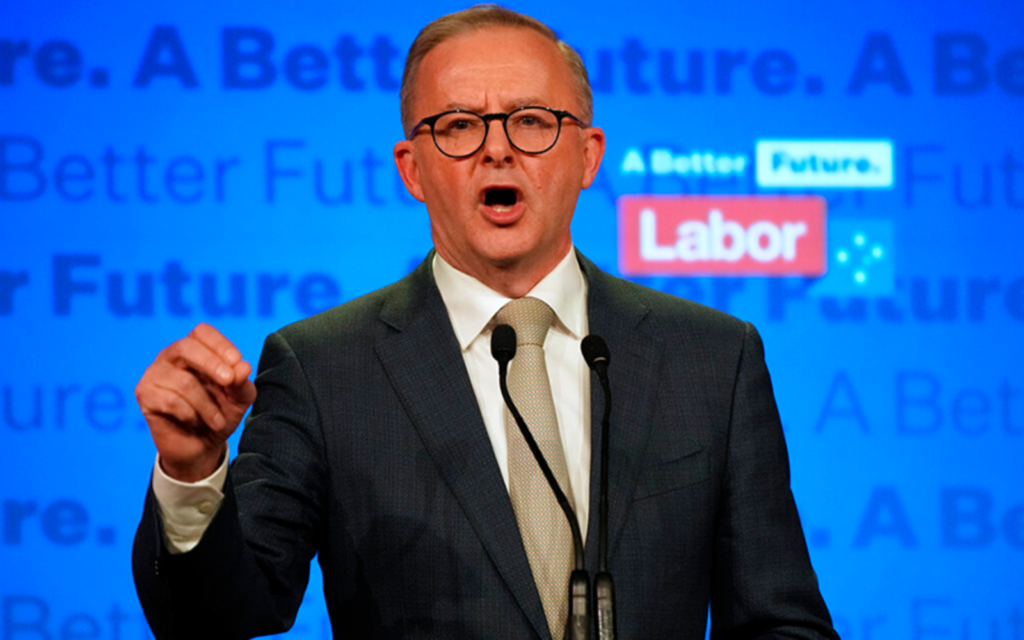Prime Minister Anthony Albanese has stated that it is in “Australia’s national interest” to stand with Ukraine, following his participation in a virtual summit of world leaders aimed at bolstering support for ceasefire discussions. The summit, hosted by UK Prime Minister Keir Starmer, brought together 25 leaders from European and Commonwealth nations to discuss strategies to support Ukraine and increase pressure on Russia to agree to a ceasefire. During the meeting, Sir Keir urged the leaders to join a “coalition of the willing” to protect Ukraine and ensure a lasting peace.
Albanese emphasized that Russia’s actions under President Vladimir Putin represent “imperialist designs for Ukraine and beyond,” describing the conflict as “a struggle for the international rule of law.” He asserted that Australia would continue to support Ukraine for as long as necessary and stressed that Russia’s “illegal and immoral actions” must not be rewarded through any peace process. Sir Keir echoed this sentiment, stating that while Putin would eventually have to come to the negotiating table, the international community could not afford to wait and must actively prepare for a secure and lasting peace.
The UK and France have expressed willingness to send peacekeepers to Ukraine in the event of a ceasefire, and Albanese confirmed that Australia is open to similar requests. Defence chiefs from participating countries are scheduled to meet in the UK later this week to develop robust plans to support Ukraine in the event of a ceasefire agreement. Sir Keir highlighted the importance of US involvement in these efforts, noting that any security guarantees for Ukraine would require cooperation from Washington. He reiterated that the UK remains in daily contact with the US on this matter.
The virtual summit comes amid a flurry of diplomatic efforts to address the ongoing conflict, particularly after former US President Donald Trump’s direct engagement with Russia disrupted Washington’s previous supportive stance toward Ukraine. Trump has expressed optimism about ending the war, citing productive discussions between his envoy and Putin. Ukrainian President Volodymyr Zelenskyy, who also participated in the summit, expressed hope for a resolution, emphasizing the need for solid security guarantees from European partners, including 100% air defense coverage as a deterrent in any peace deal.
Putin has indicated Russia’s support for a ceasefire in principle but insists that certain conditions must be met, including Ukraine abandoning its aspirations to join NATO, Russia gaining control of four disputed Ukrainian regions, and limiting the size of Ukraine’s military. These demands have been rejected by Kyiv, with Zelenskyy stating that territorial issues are complex and should be addressed after a ceasefire is in place. He has also firmly stated that Ukraine will never recognize occupied territories as Russian.
The summit underscores the international community’s commitment to supporting Ukraine while navigating the complexities of diplomacy and security. Albanese’s remarks reflect Australia’s alignment with its allies in condemning Russia’s actions and advocating for a just and lasting resolution to the conflict. The involvement of global powers, including the US, remains critical to ensuring that any peace agreement is both enforceable and sustainable. As the situation evolves, the focus remains on maintaining unity among allies and preparing for a future where Ukraine’s sovereignty and security are safeguarded.





